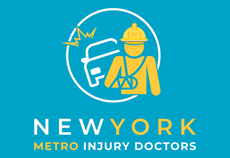
Have you ever been in a car accident? For many people the trauma and recovery process after a car accident can be excruciating. The worst part is that many suffer from post-traumatic stress syndrome and don’t even know it. Do you have a hard time sitting in your car? Are you overly cautious and hit the break a lot?
The first thing you need to do is practice meditation. It’s a way to recognize what is triggering the fear. If you were in a car accident and on that day it was storming out, then you may become more anxious in bad weather. Then again, if you were in a car accident at the beach or listening to a certain song, when those things roll back into your life you will find that you may become scared again. It’s okay. Remember and recognize that this is only anxiety caused by the trauma your mind and body suffered during the accident. Next, try to suppress the memory, and meditate. Medication will help you to compartmentalize and remove the fears that you have on the outside. This will include anxieties and everyday worries. Remember medications are available to clear your mind and you have to do this in order to move on. Once you begin practicing try to meditate for longer and longer periods of time. It will help you in the long run. If you learn to meditate you will be able to naturally suppress the bad memories and drive so that you can concentrate on the road.
Have a massage and recognize that the mind and body are intrinsically connected. If you are anxious or stressed your body will be affected. You will feel the stress in your back, shoulder and neck. That is the most common areas on the body in which people carry their stress. Car accident survivors seek injury therapy to help them overcome their fears and release tension in their bodies. Another important practice is deep breathing. Practice deep breathing and send that oxygen to your mind to keep it all clear. Deep breathing also calms our body. If you feel like you are going to panic, then practice deep calm breathing. Overcoming your fears of driving or riding in a car again are hard to do. But these steps will help to minimize the anxiety.
PTSD is a traumatic reliving of an event that caused mind and body stress. There are common symptoms associated with is. In fact most people will relive the ordeal with thoughts and memories of the action. They may include flashbacks, hallucinations, and nightmares. They may also be distressed and unable to function from it. Avoidance of people and places that trigger trauma are another cue that you may be experiencing PTSD. It can also lead to feelings of detachment, and anxiety. Everyone reacts differently to trauma, but as each person is unique so too is each person’s experience with trauma. PTSD is very real and should not be ignored.




